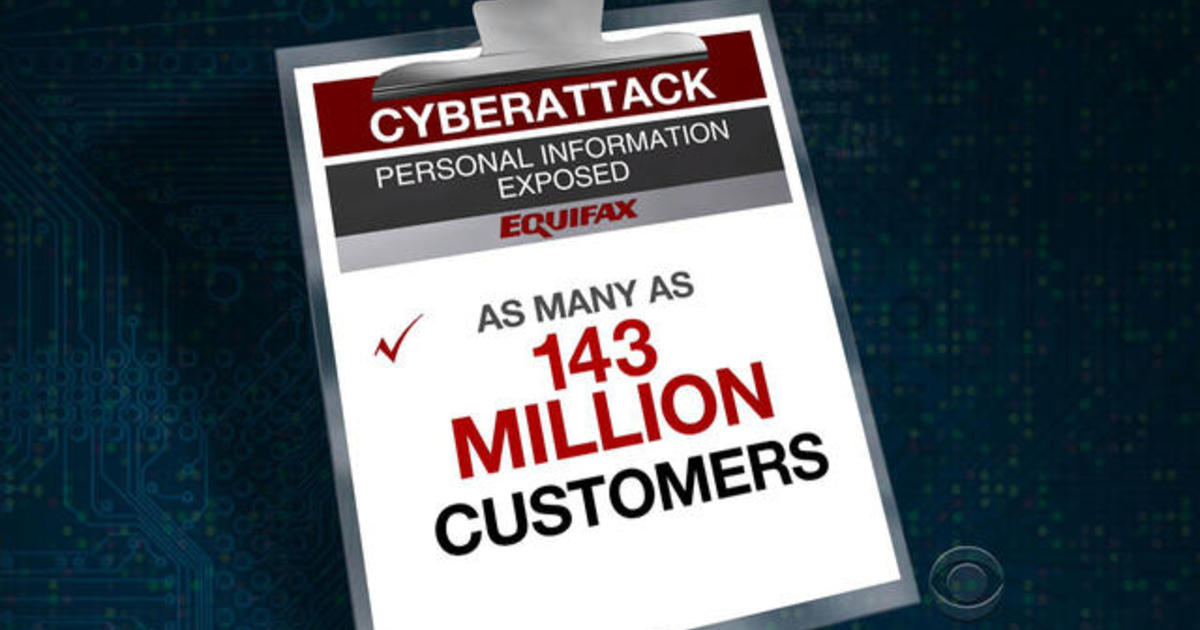Equifax News Update
As many as 143 million Americans personal information exposed…

Image by CBS News
The credit reporting agency, Equifax, announced on September 7 that a computer hack had possibly compromised the credit histories of possibly as many as 143 million Americans.
From those customers who enrolled in the offered identity theft protection services, there was concern that an arbitration clause they read would make it difficult to join a class action suit against Equifax at a later date.
On September 10, Equifax issued a new statement further clarifying its stance on the arbitration clause: “To confirm, enrolling in the free credit file monitoring and identity theft protection products that we are offering as part of this cybersecurity incident does not prohibit consumers from taking legal action,” Equifax said.
The company also said that it has now removed the arbitration language from the terms of use on its data breach notification site, equifaxsecurity2017.com. It also said that the terms of use on Equifax’s main site, equifax.com, do not cover the TrustedID Premier Service, which has its own terms of use.
“Again,” Equifax continued, “to be as clear as possible, we will not apply any arbitration clause or class action waiver against consumers for claims related to the free products offered in response to the cybersecurity incident or for claims related to the cybersecurity incident itself.”
For anyone who has or now plans to enroll in the offered identity theft protection services, please be advised that once you enroll and enter your e-mail address, you will be contacted by the TrustedID company directly and not Equifax itself.
And Another Thing…
 Please be aware that right after a breach like this, identity thieves take advantage of the panic and begin to misrepresent themselves as part of the solution in order to get even more information from unsuspecting consumers. Already bogus websites have been cloned to look like Equifax with the substitution of just a few words. Be careful.
Please be aware that right after a breach like this, identity thieves take advantage of the panic and begin to misrepresent themselves as part of the solution in order to get even more information from unsuspecting consumers. Already bogus websites have been cloned to look like Equifax with the substitution of just a few words. Be careful.
Work through the equifax.com website, using the links they provide on their pages. If you’re asked to type in a website address, it may not be the right one.
If you are uncertain about the steps you are taking, or you have any questions about this situation, feel free to call your Vermillion Financial Advisor.
We are following the Equifax news, as we’re sure you are, too. We will pass on more information and tips accordingly.
Note: The opinions voiced in this material are for general information only and not intended to provide specific advice or recommendation for any individual. Please remember that past performance of investments may not be indicative of future results. Different types of investments involve varying degrees of risk, and there can be no assurance that the future performance of any specific investment, investment strategy, or product made reference to directly or indirectly in this newsletter (article), will be profitable, equal any corresponding indicated historical performance level(s), or be suitable for your portfolio. Due to various factors, including changing market conditions, the content may no longer be reflective of current opinions or positions. Moreover, you should not assume that any discussion or information contained in this post serves as the receipt of, or as a substitute for, personalized investment advice from Vermillion Financial Advisors, Inc. To the extent that a reader has any questions regarding the applicability of any specific issue discussed within this newsletter to his/her individual situation, he/she is encouraged to consult with the professional advisor of his/her choosing. A copy of our current written disclosure statement discussing our advisory services and fees is available for review upon request.
LEARN MORE
« Financial Planning
CONTINUE READING
Retirees Need Good Credit Scores »
Saving More Money, Now & Later »
Retiring Before 60 »

